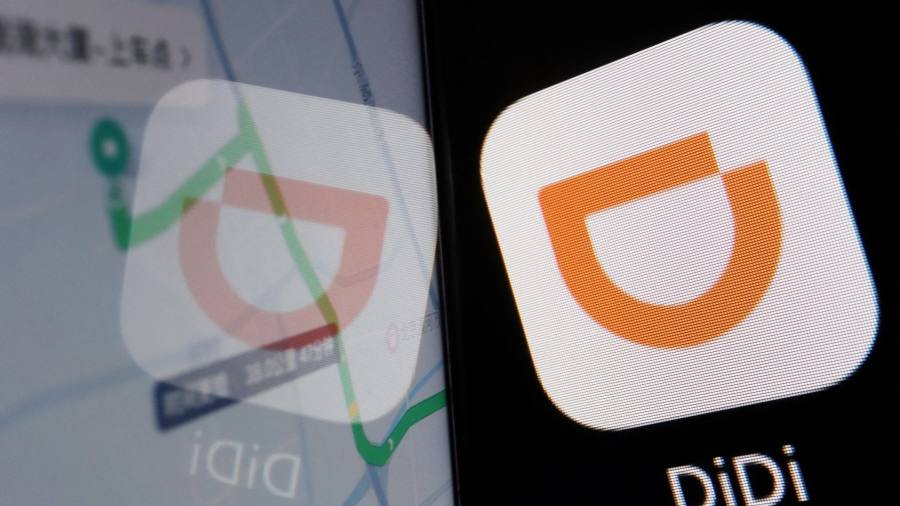When Uber was fighting Didi to become the dominant ride-hailing app in China in 2016, its drivers reported receiving a text message that drove home just how cut-throat competition in the country could be.
The message appeared to come from Uber’s China headquarters. It contained the company’s signature “5858” number combination, which in Mandarin is pronounced “wubawuba”, not dissimilar in sound to the US company’s name.
The recipients were told that Uber China was shutting down and not to expect payment. The erroneous text, recounted in the book Super Pumped by Mike Isaac on Uber, sparked confusion with the expensive-to-hire drivers who worked with the US company. No company or individual has publicly admitted to sending the text but its existence has been confirmed by two Uber insiders and someone close to a rival.
It has always stuck in my mind as a sign of how tough the Chinese market for ride-hailing and other internet-based services is. Uber has now thrown in the towel on the market but other rivals to industry leader Didi have sprung up.
Beijing’s crackdown on tech, which commenced after Ant Financial cancelled its initial public offering in late 2020, opened up the landscape for new rivals to take on the dominant players. After Didi was placed under investigation days after its blockbuster $4.4bn IPO in June 2021, competitors emerged to capitalise on the 18-month period when it was unable to sign up new customers. Meituan relaunched its standalone ride-hailing app while T3 Chuxing, backed by state-owned automakers, slashed prices to lure customers.
But it is remarkable how little ground these rivals gained on Didi, even as it spent what would have been for many companies an existentially long time in the doghouse.
Didi kept its cars on the road by dolling out subsidies for customers and drivers, funded by the war chest it raised from the share float. As China shed its lockdown restrictions at the end of last year, it started offering drivers cash rewards for completing a certain number of rides. Drivers say Didi also encouraged them to stay loyal by paying their fines if they were discovered by authorities not to have the proper taxi licence.
Didi accounted for 90 per cent of all car bookings on the eve of being placed under investigation. Since then, it has only lost 10 percentage points of the overall market share, according to data analytics firm Analysys — although these figures do not include rides booked on aggregator apps that compile options from different providers, which have grown in popularity in recent years.
Meituan’s struggle to make more market share gains during Didi’s time in political purgatory is notable. As Uber’s success in the west demonstrates, there are synergies to be found in combining food delivery and ride-hailing through customer loyalty programmes. And Meituan’s founder and chief executive Wang Xing had “long harboured” a dream of dominating ride-hailing, according to one of his former team members. Industry insiders also speak of a rivalry between Xing and Didi founder Cheng Wei.
In recent weeks, Meituan has decided to “streamline” its ride-hailing business operation. It is folding it into a different business unit, a move that will see the company pull its own fleet off the road and focus on its aggregator business, according to one person familiar with the matter.
As Uber found in the mid-2010s, fighting it out in second place in market share in China is difficult — even in such a large market and even for Uber, no stranger to hardball competition around the globe in the past.
“China takes the cake with competitive tactics,” a former Uber senior executive tells me, adding the US company realised belatedly it would never become the dominant player in the country. “There is a network effect, and the big party will always win in the long term,” they said. The former executive added that Uber was burning around $40mn a week to subsidise its China operations at the height of the competition with Didi before striking a merger with its rival in 2016.
That deal came after Uber had raised $3.5bn from the Saudi Arabian sovereign wealth fund, strengthening its position in negotiations with Didi. “We wanted to show them we were willing to fight all the way to get good terms with the merger,” one insider to the talks tells me.
Didi fought hard to win the China market and see off Uber. Barring state invention, it is unlikely to let any rivals steal its crown.
eleanor.olcott@ft.com
Stay connected with us on social media platform for instant update click here to join our Twitter, & Facebook
We are now on Telegram. Click here to join our channel (@TechiUpdate) and stay updated with the latest Technology headlines.
For all the latest Business News Click Here

